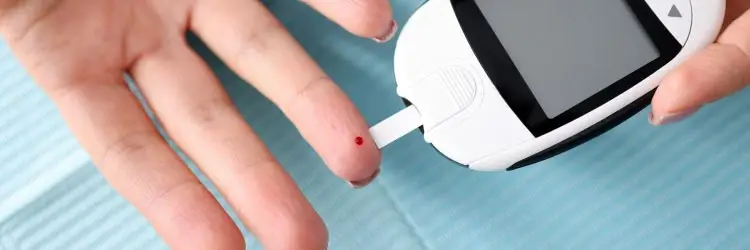Diabetes management has evolved significantly with the advent of technology. Today, several innovative devices are available that can help simplify the daily management of diabetes, particularly for the vast number of patients in India grappling with this chronic condition. These devices not only monitor blood sugar levels but also help in administering insulin doses accurately and tracking overall health trends. This article explores the various devices that are revolutionizing diabetes care for patients, making management easier, more efficient, and more effective.
Continuous Glucose Monitors (CGMs)
One of the most significant advancements in diabetes care is the development of Continuous Glucose Monitors (CGMs). CGMs provide real-time insights into glucose levels, displaying updates every few minutes, and alerting users if their levels are too high or too low.
How They Work:
A small sensor inserted under the skin continuously measures glucose levels in the interstitial fluid. The data is then sent to a display device or a smartphone app, allowing users to monitor their glucose levels without the need for frequent finger-prick tests.
Benefits:
CGMs can significantly improve the quality of life by providing detailed glucose trends and alerting patients to hyperglycemia (high blood sugar) or hypoglycemia (low blood sugar) before they become dangerous. This real-time monitoring can help tailor diet, exercise, and medication more precisely.
Smart Insulin Pens
Smart insulin pens are another technological advancement aiding diabetes management. These devices offer a more intelligent way to manage insulin therapy compared to traditional insulin syringes.
Features:
Smart insulin pens can record the time and dose of each injection and typically come with companion apps that sync this data to your smartphone. This feature is particularly useful for patients who take multiple insulin injections throughout the day, as it helps to track their medication schedule and avoid missed or duplicate doses.
Advantages:
The ability to track and record insulin usage helps in better glycemic control and provides valuable data that can be shared with a healthcare provider for improved treatment plans.
Insulin Pumps
Insulin pumps are small, computerized devices that deliver insulin through a catheter placed under the skin. They serve as an alternative to multiple daily insulin injections by continuously delivering insulin at set and variable rates.
Functionality:
Insulin pumps administer small doses of fast-acting insulin continuously throughout the day and night. Users can also deliver a “bolus” dose to manage the rise in blood sugar after meals, all of which can be programmed according to individual needs.
Impact:
Pumps simplify insulin therapy and improve lifestyle flexibility and blood glucose control. They are particularly beneficial for people with erratic lifestyles or those who require complex insulin regimens.
Mobile Apps Integrated with Medical Devices
Many diabetes devices are now designed to be integrated with mobile apps, which provide detailed data analyses and visualizations of a person’s blood sugar patterns, diet, medication adherence, and physical activity.
Utility:
Apps linked with CGMs, smart insulin pens, and insulin pumps can help patients make informed decisions about their lifestyle and treatment options. They also enable secure sharing of medical data with healthcare providers, facilitating remote monitoring and telemedicine, which is increasingly relevant in the context of India’s vast geography and urban-rural divide.
Choosing the Right Device
When choosing a device to manage diabetes, consider the following:
- Compatibility: Ensure the device is compatible with your smartphone or any other device you use.
- Ease of Use: The device should be easy to use and fit comfortably into your daily routine.
- Cost: Consider the cost of the device and any ongoing expenses for supplies like sensors or insulin.
- Support: Good customer support is crucial for troubleshooting and helping with any issues that may arise.
Conclusion
Managing diabetes effectively requires careful monitoring of blood sugar levels, diet, and medication. With the advancement of technology, various devices now offer sophisticated ways to handle these aspects more efficiently. For millions of diabetes patients in India, these devices are not just tools but lifelines that offer a chance at a normal and healthy life. As technology continues to evolve, it holds the promise of even greater improvements in diabetes care, potentially making management easier and reducing the incidence of diabetes-related complications.

